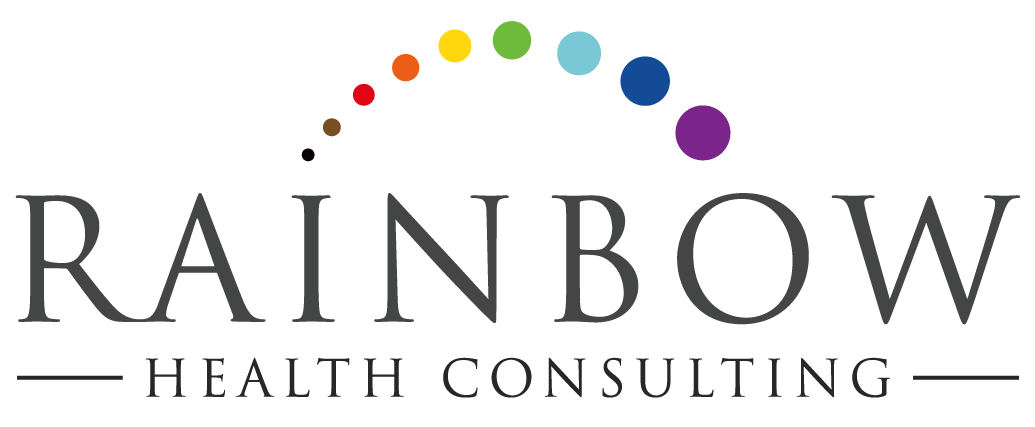Oncology Professionals Benefit from Provider Education on LGBTQ+ Issues
Significant health disparities remain for cancer patients who identify as LGBTQ+, and differences also remain in terms of quality of life during and after the cancer diagnosis as well. Similar to LGBTQ+ individuals without a cancer diagnosis, those with a cancer diagnosis experience greater use of substances including alcohol, tobacco, and illicit drugs when compared to their cisgender and heterosexual counterparts. LGBTQ+ cancer survivors also experience greater relationship struggles and and levels of distress when compared to heterosexual cancer survivors.
Many health care providers in oncology experienced little to no education on LGBTQ+ health during their medical or nursing education. They may not be aware of the health disparities and impact faced by their LGBTQ+ oncological patients, or how LGBTQ+ identity itself can be a health risk factor.
Some cancers are more prevalent in certain LGBTQ+ populations, such as breast cancer in women who have sex with women, making it that much more important to participate in efforts to increase provider understanding of health disparities and concerns.
Some patients may not disclose their sexual orientation and/or gender identity to their providers when seeking treatment, and if providers do not ask they may miss vital information to improve patient outcomes. If patients do not disclose their risk factors, providers may miss important screening tests and targeted interventions.
Social determinants of health factor into the the health disparities between LGBTQ+ and cigender and/or heterosexual communities as well when it comes to cancer diagnosis and survivorship. LGBTQ+ people have statistically less economic stability; lower levels of education; discrimination in employment, housing, and general civil rights; poor access to health care; and other considerations that may negatively impact the cancer experience.
Provider education will bridge the gap between current knowledge and the necessary level of evidence for oncology professionals to improve the care of their LGBTQ+ patients. This education should include an understanding of vocabulary and definitions; improving the environment for LGBTQ+ patients; improving communication and social support systems; and cancer survivorship issues specific to LGBTQ+ persons.
As oncology nurses and oncologists become more informed and are better able to provide culturally competent care, they can better serve their LGBTQ+ patients and contribute significantly to increased quality of life and improved patient outcomes.
The National LGBT Cancer Network has provided a helpful list of resources:
The Gay and Lesbian Medical Association, Cancer in Our Lives
http://www.glma.org
American Cancer Society
Cancer Facts for Lesbians and Bisexual Women
Cancer Facts for Gay and Bisexual MenNational Cancer Institute
http://www.cancer.govCDC LGBT Lesbian, Gay, Bisexual and Transgender Health
http://www.cdc.gov/lgbthealthSimms/Mann-UCLA Integrative Oncology Program
http://www.simmsmanncenter.ucla.eduCancerCare’s LGBT Program
http://www.cancercare.org/get_help/special_progs/lgbt.php
Cancer health disparities
Healthy People 2010 Companion Document for Lesbian, Gay, Bisexual and Transgender (LGBT) Health.
http://www.nalgap.orghttp://www.nalgap.org/PDF/Resources/HP2010CDLGBTHealth.pdfNational Cancer Institute Center to Reduce Cancer Health Disparities
http://crchd.cancer.gov/Physicians for Human Rights, The Right to Equal Treatment
http://physiciansforhumanrights.org
National cancer organizations of
particular interest to LGBT people
Cancer Support Community
http://www.cancersupportcommunity.org/The National Coalition for LGBT Health
http://www.lgbthealth.net/The Annie Appleseed Project
http://www.annieappleseedproject.orgYoung Survival Coalition
Fertile Hope: fertility resources for cancer patients
http://www.fertilehope.orgI’m Too Young for This.
http://www.imtooyoungforthis.org/Living Beyond Breast Cancer
http://www.lbbc.orgColorectal Cancer Coalition
http://fightcolorectalcancer.orgBreast Cancer Alliance
http://breastcanceralliance.orgLymphoma Research Foundation
http://www.lymphoma.orgNational Prostate Cancer Coalition
http://www.fightprostatecancer.orgHealth Care Information Resources
http://hsl.mcmaster.caOncoLink
http://oncolink.orgMen Against Breast Cancer
http://menagainstbreastcancer.orgDr. Susan Love Research Foundation
http://susanlovemd.comCancer Grief
http://www.cancergrief.comLiving with Prostate Cancer
http://prostatecancerblog.netIntercultural Cancer Council
http://www.iccnetwork.orgMichele Forsten
http://Micheleforsten.comNational Coalition for LGBT Health
http://www.lgbthealth.netNational LGBT Tobacco Control Network
http://www.lgbttobacco.org
Anal cancer
MedlinePlus
http://www.nlm.nih.gov/medlineplus/analcancer.htmlAbout.com: Aids/HIV
http://aids.about.com/cs/conditions/a/analpaps.htmShoutouthealth.com
http://www.shoutouthealth.com/Analcancerfoundation.org
http://www.analcancerfoundation.org/
HIV and cancer
HIV InSite.
http://hivinsite.ucsf.edu/InSite?page=kb-06
Bisexual health
The National Gay and Lesbian Task Force Policy Institute report on bisexual health
http://www.thetaskforce.org/downloads/reports/reports/bi_health_5_07.pdf
Transgender people and cancer
American Cancer Society on trans cancer disparities and risks
http://www.glbthealth.org/documents/FactSheetRevised-TransgenderedIndividuals.pdfTrans Care Project, a joint effort of Transcend Transgender Support & Education
Society and Vancouver Coastal Health’s Transgender Health Program.
http://www.vch.ca/transhealth/resources/library/tcpdocs/consumer/medical-cancer.pdfGender.org- Gender Education & Advocacy, Inc.
http://www.gender.org/resources/dge/gea02003.pdf
Local lesbian cancer organizations
Long Island Lesbian Cancer Initiative (Long Island, NY)
http://www.lilci.orgLesbian Cancer Initiative (NY, NY)
http://www.gaycenter.org/program_folders/LCI/program_viewNew York City Lesbian Cancer Support Consortium (NY NY)
http://groups.yahoo.com/subscribe/lesbiancancerconsortiumLesbian Cancer Support Services (Denver, CO)
http://www.glbtcolorado.orgWingspan—Lesbian Cancer Health Project (Southern AZ)
http://www.wingspan.org/content/LCHP.phpThe Atlanta Lesbian Health Initiative (Atlanta GA)
http://www.thehealthinitiative.orgFenway Community Health (Boston, MA)
http://www.fenwayhealth.orgThe Hambleton Project (Portland, OR)
http://www.hambletonproject.orgLesbian Community Cancer Project (Chicago, IL)
http://www.lccp.orgThe Center—Lesbian cancer Support Services (Denver, CO)
http://www.glbtcolorado.orgWomen’s Cancer Resource Center
http://www.wcrc.org/

